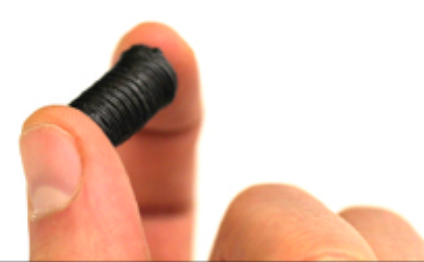During surgery, one time-consuming and challenging aspect of a surgeon’s work is stitching arteries. The work is necessary to restore blood flow to certain areas but is extremely skill-dependent.
In order to make this tricky microsurgery somewhat easier, engineers at the University of Nebraska-Lincoln are developing 3D printed sugar-based stents.
These stents fit inside adjacent ends of a clipped artery, sticking the interior and holding the ends in place to provide surgeons with structural support during stitching. The engineers used 3D printing to customize a stent to the exact diameter of a patient’s artery.
So far, the team has only tested their work on pig arteries. But, they have seen promising results and report that while conventional suturing methods take 15 minutes, their stent-assisted suturing takes just five.

3D Printed Stent-Assisted Suturing Saves Time and Reduces Risk
As well as saving time, the engineers found that 3D printed stent-assisted suturing reduces the risk of a surgeon making mistakes, such as blocking blood flow by threading through the top and bottom of an artery.
Once the suturing is complete and blood flow resumes, the sugar-stent is then dissolved and is harmless in the body of the patient.
The recipe for the 3D printed stent includes glucose, to provide stickiness, dextran, a glucose derivative adding flexibility, as well as sucrose and sodium citrate to combat blood clotting.
This mixture is then dissolved in water and baked until the water has evaporated and a molten ink fluid is left which can be printed before solidifying in mere minutes.
Thanks to such positive results from testing their stents on pig arteries, the researchers hope to begin testing the stents on live animal arteries soon. The aim is to one day print the stents in hospitals for use on patients.
An engineer working on this process, Ali Tamayol, jokes: “One thing that I really like about this concept: We are always trying to avoid sugar. Everyone knows that sugar is (sometimes) bad. But here we found an application where it’s good.”
For more on innovations in healthcare using 3D printing, check out these stories:
- Medical 3D Printing: The Best Healthcare Applications
- Doctors Plan to 3D Print Bone Implants Mid-Surgery
- 3D Printing Hearts of Babies with Congenital Heart Disease to Improve Care
Source: Today’s Medical Developments

License: The text of "Engineers Using 3D Printed Sugar Stents to Improve Surgery Success" by All3DP is licensed under a Creative Commons Attribution 4.0 International License.